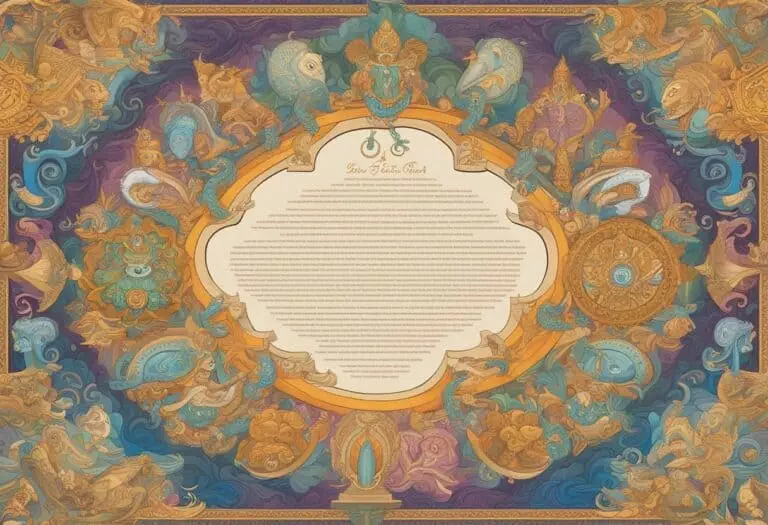Baby Name Daisy: Trendy or Timeless? Choosing the Perfect Floral Moniker
Choosing a baby name can be an exciting yet daunting task. You might be looking for a name that’s charming, with a touch of nature and a sprinkle of traditional simplicity. If so, the name Daisy might just be the perfect fit for your little one. It’s a name of English origin that carries the bright and cheerful symbolism of the daisy flower. Over the years, the name Daisy has maintained a friendly vibe and a down-to-earth quality that many parents find endearing.

The popularity of the name Daisy has seen various waves, with a significant resurgence as part of the trend where vintage names make a comeback. It’s a name that’s both classic and fresh, avoiding the pitfall of feeling outdated. Daisy has a universal appeal, and its connection to the flower of the same name imbues it with a sense of purity and innocence. As you consider baby names, Daisy is worth keeping on your list, especially if you’re drawn to names that reflect beauty found in nature.
Table of Contents
The Origin and Meaning of Daisy
When you hear the name Daisy, you’re instantly reminded of the charming and bright flower that dots meadows and gardens. This name, rooted in nature, carries a legacy that dates back centuries and a meaning that’s as uplifting as the flower itself.
Historical Background
The name Daisy is reminiscent of pastoral simplicity and has been in use since the 19th century. Its popularity can be traced to a time when flower and plant names burgeoned amidst Victorian romanticism. As the centuries turned, the name saw various waves of popularity, often associated with innocence and purity — the very essence of the flower it represents.
Etymology
Daisy derives from the Old English term dægeseage, which literally translates to “day’s eye”. The term reflects the flower’s unique characteristic of opening its petals at dawn and closing them at dusk, as if to wink at the passing day. In terms of its English origin, the name Daisy has held onto its literal meaning and continues to evoke images of sunlight and renewal through its connection to the daisy flower.
Literary and Cultural References

When you explore the name Daisy, you’ll discover its intriguing presence in literature and pop culture that has cemented its role as more than just a name.
Daisy in Literature
Daisy Miller is a pivotal character from Henry James’s novella of the same name. Published in 1878, it tells the story of a young, vivacious American woman and her societal explorations in Europe. The character’s innocence and flirtatious nature often represent the quintessential American girl of the late 19th century.
In F. Scott Fitzgerald’s acclaimed novel, The Great Gatsby, Daisy Buchanan stands out as a complex character. The Great Gatsby portrays the Roaring Twenties and dives into themes of wealth, class, and passion. Daisy’s charm and allure amidst the chaos reflect the inner conflicts and societal expectations of the era.
Daisy in Pop Culture
Daisy Duke, a character from the television show The Dukes of Hazzard, embodies a southern country girl who is known for her strength, vivacity, and iconic fashion sense. The character left an indelible mark on American television and became synonymous with cut-off denim shorts, known colloquially as “Daisy Dukes.”
From a literary name enjoying quiet prestige in classics to a vibrant figure in television, the name Daisy carries a blend of sophistication and spirited energy deeply rooted in American culture.
Naming Trends and Popularity

When considering the name Daisy for your little one, you’re embracing a choice that reflects both historical charm and modern appeal. This section delves into how Daisy has fared in recent years and the cultural influences that may affect naming decisions.
Recent Statistics
Daisy has seen a resurgence, climbing baby name lists with enthusiasm. As a name, it has a nostalgic nod to the 19th and 20th centuries yet feels right at home in today’s nurseries. Let’s look at the numbers:
- Popularity: According to Nameberry, Daisy has emerged from a century’s hibernation to become a fresh and vibrant choice.
- Ranking: Daisy has been climbing the ranks and, as indicated by Name of the Year, it jumped 30 spots in one year to become the 95th most popular name in 2023.
This upward trend showcases Daisy’s blossoming appeal among new parents who are looking to balance classic names with unique flair.
Cultural Impact on Naming
The cultural resonance of a name like Daisy extends far beyond its botanical roots. The name conveys purity and innocence—traits that are often sought after for baby names. Here’s why Daisy might resonate with you culturally:
- Cultural Classics: The name Daisy has graced literature and media, often reflecting an endearing and youthful character, which might influence your affection for the name.
- Modern Mentions: While anchored in tradition, Daisy carries a simplicity and brightness that modern parents find appealing, as it reminds one of the simple beauty of the flower and the positivity it represents.
Your choice of Daisy is not just a nod to the past but a step into a trend that enjoys a cross-cultural embrace. It’s easy to understand why Daisy is enjoying a spot of sunlight on today’s baby name lists.
Associations and Symbolism

When you choose the name Daisy for your baby, you’re selecting a name rich with symbolism and natural associations. The name carries with it the freshness of a flower and a bright, pure sentiment that’s remained popular since the Victorian era.
Floral Symbolism
Daisy:
A classic symbol of innocacy and purity, the daisy flower stands out in nature with its simple beauty. Culturally, it has often been linked to attributes of youth and simplicity. Moreover, the daisy flower, with its round yellow center, has been known as the “day’s eye,” reflecting its unique pattern of opening in the daylight and closing at dusk.
Color Associations
White:
The most common daisy flowers are recognized by their white petals. White in this context further accentuates themes of cleanliness and virtue. Within the context of the Victorian era, the white daisy was a part of the language of flowers, where it could silently communicate sentiments of high moral values and chaste love.
By understanding these associations, you gain insight into the deeper meanings that infuse the name Daisy with a character that’s both unassuming and richly endowed by nature and history.
Choosing the Name Daisy
When you consider the name Daisy for your little one, you’re selecting a name that is synonymous with purity and innocence. It’s a cheerful choice that carries the freshness of the flower it’s named after.
Pronunciation and Variations
Pronunciation: The name Daisy is pronounced as DAY-zee.
Variations to Consider:
- Dacey: An alternative spelling that adds a unique twist.
- Desi: A variation that offers a more modern sound.
- Dais: A shortened form, often used as a nickname.
- Daisie: This alternative retains the original’s charm with an added ‘e’.
- Deisy/Deysi: These variants offer a unique spelling while keeping the sound.
Considerations for Parents
When naming your child Daisy, consider its floral connection which signifies innocence and new beginnings. Here are a few points to ponder:
-
Gender: Traditionally, Daisy is a female name.
-
Popularity: This name has a timeless quality, yet isn’t overly common.
Keep in mind, your daughter might share her name with some Desi or Deisy, but Daisy stands out with its classic charm and simplicity.

